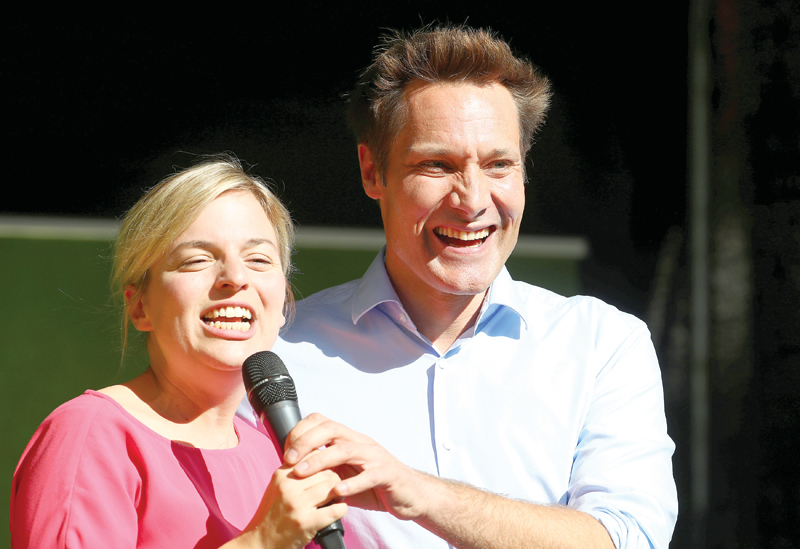

BERLIN/MUNICH: Chancellor Angela Merkel’s Bavarian allies are heading for their worst showing in a state election in over 60 years, a setback that risks widening divisions within Germany’s crisis-prone national government.
Polls show the Christian Social Union (CSU) will win at most 35 per cent on Sunday, losing the absolute majority with which it has controlled its southeastern heartland for most of the post-war period.
That stable power base has also allowed the CSU, sister party to Merkel’s Christian Democratic Union (CDU), to punch above its weight in Berlin.
Since Merkel’s 2015 decision to open Germany’s borders to more than 1 million migrants, CSU leader Horst Seehofer has been a thorn in her side, gradually shifting his party to the right to counter the rise of the anti-immigration Alternative for Germany (AfD) party.
“I would expect Seehofer to lash out against her again,” said Carsten Nickel at consultancy Teneo Intelligence. “The CSU is in decline, and that process... is not going to play out without significant noise.”
Divisions between the conservative allies have widened further since March, when an inconclusive national election forced them into a coalition with the left-leaning Social Democrats (SPD).
Merkel’s fourth and probably final government has already come close to collapsing twice, in arguments over immigration and a scandal over Germany’s former domestic spymaster, while a simmering row over phasing out polluting diesel cars now threatens to boil over.
On Thursday SPD leader Andrea Nahles, citing divisions between the CDU and CSU, again questioned her party’s future in the government.
On Saturday, Merkel urged the conservative parties to end their infighting before the Bavaria vote, but after her rows with Seehofer —who serves as interior minister in Berlin — she will not join the CSU’s final rally in Munich on Friday.
Austrian Chancellor Sebastian Kurz, an immigration hardliner, will attend instead.
The CSU was forced into a coalition from 2008 to 2013 after losing its absolute majority, but had previously ruled Bavaria alone since 1966. Since 1954, its share of the vote has not fallen below 43 per cent.
A weak showing on Sunday —from which the AfD and the ecologist Greens look best placed to benefit — is also likely to escalate infighting among CSU leaders desperate to revive the idea that the party represents the essence of Bavaria’s economic and cultural success story.
Sunday’s vote, likely to force the CSU into a coalition potentially as messy as the one in Berlin, is followed by three more events this year that pose a more direct risk to Merkel.
Her CDU is expected to suffer setbacks in another regional state vote in Hesse in late October, and the party then holds a conclave and its annual congress.
If Merkel does not emerge well, her opponents would likely “feel encouraged to come out in the open and intensify their criticism,” Matthias Dilling at Oxford University said.
The parliamentary party ousted her ally, Volker Kauder, as leader last month, but senior conservatives on Sunday backed her bid for re-election as CDU chairwoman at the congress.
In Bavaria, support for the AfD — with whom the CSU has ruled out an alliance — stands at 10-14 per cent, surveys show.
The Greens, polling around 18 per cent, are emboldened by successes in neighbouring Baden-Wuerttemberg, traditionally a conservative state, where they now lead a coalition government. After the Freie Waehler (FW), a locally focused conservative party polling around 11 per cent, the Greens could be next in line as a potential partner for Seehofer — though that seems far from a natural fit. — AFP
Oman Observer is now on the WhatsApp channel. Click here



